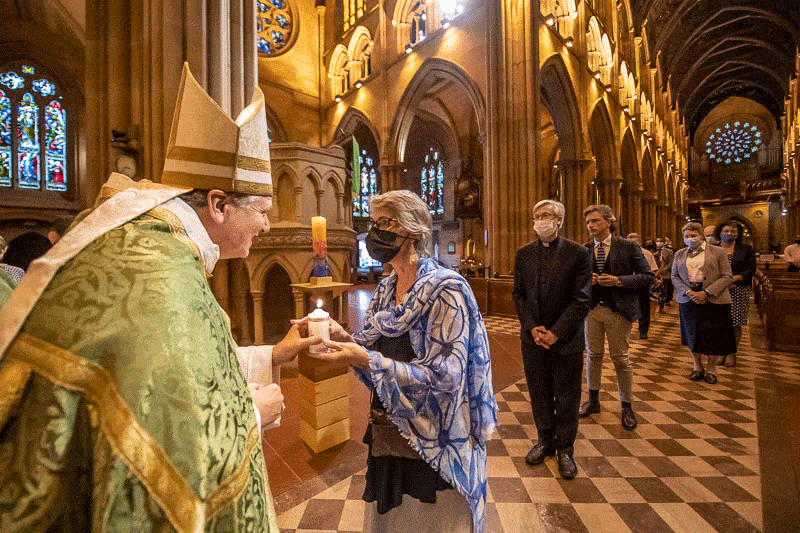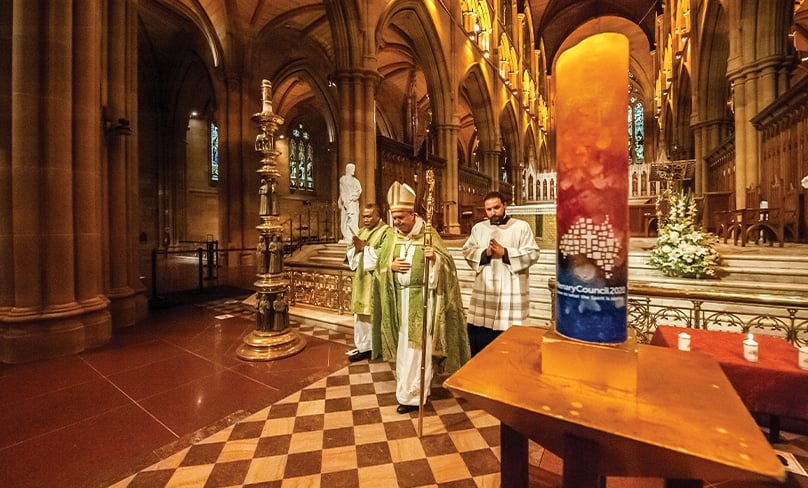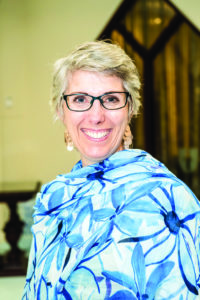
Last week, The Catholic Weekly spoke to Archbishop Anthony Fisher OP regarding his hopes for the first assembly. This week, we speak to two female members who are in the midst of their final preparations for the upcoming Plenary Council.
The last Plenary Council was in 1937. Why do you think it is important we hold a Plenary Council at this time, and what are some things you would like to see the Plenary Council address?
Selina Hasham, CEO, Harvest Journeys and Member for the Archdiocese of Sydney
The last Plenary Council seemed to address the needs of the time and set the course for the missionary focus of the Church in Australia in the ensuing decades. That largely took the shape of bricks and mortar in the infrastructure of schools and parishes that we have today. We are grateful for such a missionary focus that left us with such patrimony.
Today’s Plenary Council should answer the specific needs of our time, perceive the needs of this generation and the five to come, and adopt a missionary direction which is just what is required for context of our current age.

History will demand of the Plenary Council 2020 an appropriate response to the era in the Church that was marred by the sexual abuse crisis. Unless we make a fervent, generous, heartfelt response to those who have been harmed and wounded by the Church, I fear our other efforts and resolutions will be hollow, and eventually fail.
This involves acknowledging the Church bears a great wound. There’s a lot of pain in our Church and a whole bunch of wounded people walking around and walking away. To pretend the Church is not wounded is futile and maybe even dangerous.
The Plenary Council gives us a great opportunity to become a Church that is humble and merciful and can lead the way in healing the wounded. No more bricks and mortar but a renewed focus on the person of Jesus Christ, the Wounded One, and who he is for us in our time.
How might the Church in Australia use all its customs, resources, structures and ways of doing things to bring people into relationship with Jesus Christ?

Francine Pirola, Director, Marriage Resource Centre and Member for the Archdiocese of Sydney
One of the most compelling statements I heard among the Plenary discussions was this: The Church does not have a mission; the Mission has a Church. In other words, the Church, as an institution and as a community, exists to support ‘the mission’. But what is this mission? Every Pope since Vatican II has repeated what Paul VI asserted in1975: ‘The Church exists to evangelise’ [EN n14].
Here in Australia, our evangelisation record in recent decades is underwhelming. It’s not just that our numbers are in decline (Mass goers, weddings, ordinations, baptisms etc), it’s that even among those who still show up, too few seem to be ‘alive in the Spirit’ and nourished by a deep and personal relationship with Jesus.
Subsequently, many of our activities as a church have lost the urgency of proclaiming Christ as our Redeemer. This ‘mission drift’ is not doing the Church or our mission any good. This is not a new observation and already in many dioceses, Sydney among them, there is a renewed focus on evangelisation and major restructuring to support this has already occurred.
Central to this vital work is the ‘re-evangelisation’ of our own believers – a phenomenon noted by Pope John Paul II as the ‘new evangelisation’. Crucial to success of the evangelisation agenda is the role of marriage and family.
One of the most effective evangelists of all time, St Paul, referred the ‘Great Mystery’ [Eph 5:32]; the life-giving union of husband and wife that images the relationship of Christ and the Church. In other words: the ‘one flesh union’ of husband and wife images the ‘one flesh union’ of Christ and his bride in the Eucharist.

If the polls are to be believed, only a minority (approximately 31 per cent) of Catholics believe in the real presence in the Eucharist.
I would suggest that the crisis of faith in the Eucharist is not just coincidental with the crisis of faith in marriage, but intimately related. Most Catholics no longer believe that God ordained the sexual union of husband and wife to be a sacred proclamation of Christ’s union with the Church, reserved for marriage alone.
Just look at the ‘hot button’ issues that came up again and again in the consultation and listening groups: contraception, divorce & remarriage, homosexual unions, married clergy, women priests, sexual abuse, clericalism, female leadership … they all relate to human sexuality – the very core of the ‘Great Mystery’.
Clearly, we must be more active in forming people at all stages of life in the ‘Great Mystery’ (a process Pope Francis has called the ‘marriage catechumenate’). Most especially we need deep conversion among married couples who are called to witness to the ‘Great Mystery’ through their love.
Equally, we must be more proactive in bringing Christ’s healing into these areas of brokenness, where people experience debilitating pain and confusion. It is not enough to proclaim a vision but do nothing to heal the wounds of those who suffer through the failure to live it.
As our Australian Catholic community comes to terms with the impact of ‘living with Covid’, one thing seems certain: we will need to be very intentional about our priorities. There simply isn’t much padding in the budget for anything other than the essentials.
Whatever emerges from the Plenary Council discussions, we need to evaluate it in terms of short – and long-term cost-benefits.
The Marriage agenda always loses out in the short term but if we don’t build our reforms on the foundation of the ‘Great Mystery’, I fear our pastoral efforts over the long term will fail to take root or bear fruit.
Related Articles:
